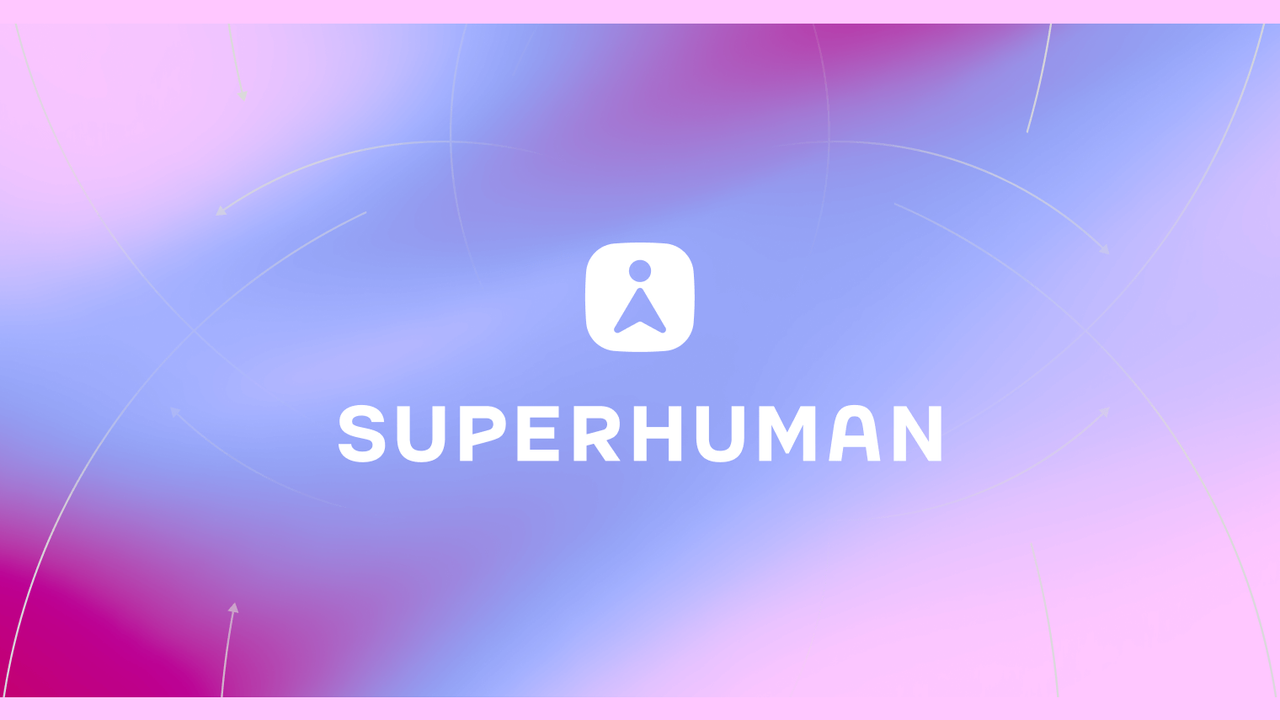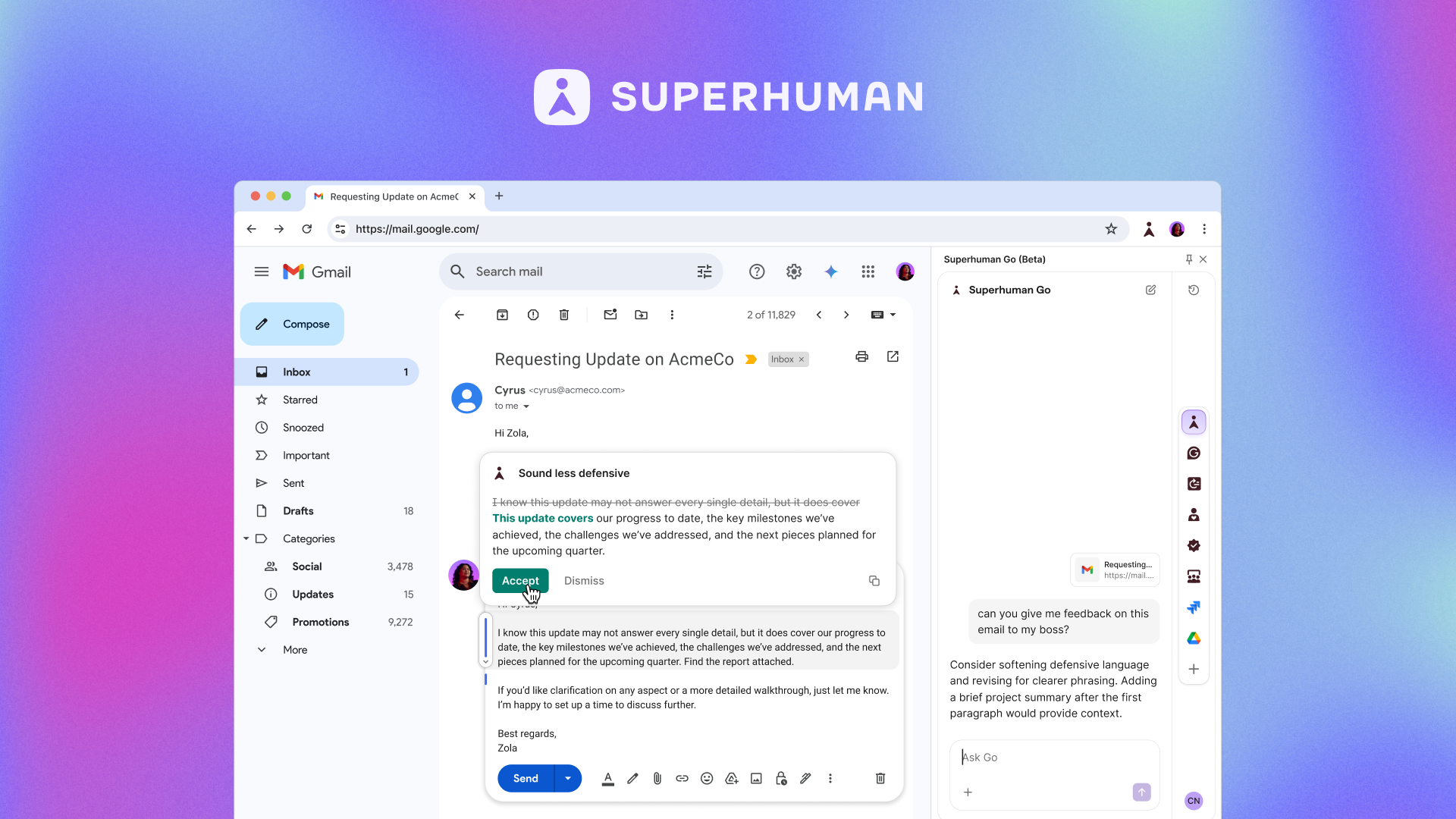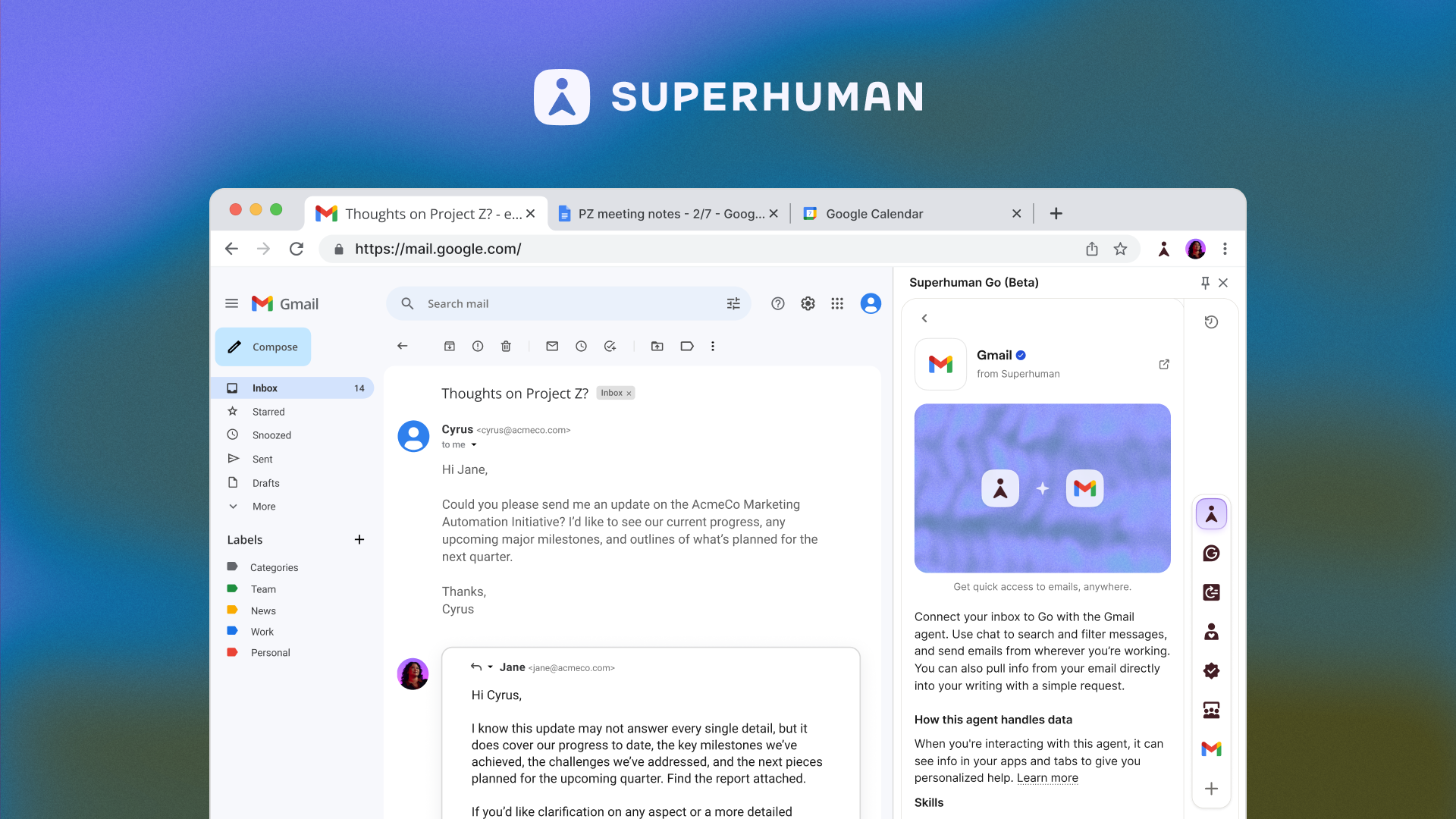
Grammarly, the AI-powered writing assistant used by more than 40 million people, is proving to be bigger competition for rivals like ChatGPT and Gemini with a major rebranding. Officially changing its name to Superhuman, the company has revealed an entire package of new AI tools for writing and beyond.
Today the company announced the rebrand, uniting Grammarly, Coda and Superhuman Mail under a single umbrella to form what it calls an “AI-native productivity platform.”
The move marks Grammarly’s biggest transformation in its 16-year history. Instead of simply checking grammar and tone, Superhuman now promises to handle your email, documents, meetings and team collaboration with a new generation of AI agents that work across all your tools.
Why Grammarly rebranded to Superhuman
“Superhuman represents a fundamental shift in how we think about AI at work,” said Shishir Mehrotra, CEO of the newly renamed company. “The name reflects our belief that AI should amplify human capability, not replace it.”
Grammarly’s leadership says the new identity reflects where the company has been headed for years: building an ecosystem that works everywhere you work. The rebrand also signals its ambition to compete directly with Microsoft Copilot and Google Gemini, both of which are integrating AI more deeply into office tools.
At the center of this vision is Superhuman Go, a new AI assistant that blends context from across your apps to proactively help you, without needing to switch tabs.
AI that works where you work

Superhuman Go, the company’s most ambitious product yet, connects to over 100 popular apps — including Google Workspace, Outlook, Jira, and Confluence, to deliver real-time insights and assistance directly in your workflow.
For example, when replying to an email, Go can automatically pull data from your CRM, summarize recent tickets and even draft your response in your own tone.
During meetings, it can remind you what was discussed last time and what still needs follow-up. And if a long chat thread needs to become a meeting, Go can find when everyone’s free and schedule it for you.
Chief Product Officer Noam Lovinsky says that while most AI tools still expect users to change how they work, Go learns your habits instead. “It’s the difference between having an AI tool you have to remember to use and an AI partner that’s actively working with you,” he explained.
Four products, one AI-native platform

The Superhuman Suite, available now, brings together four distinct tools:
- Grammarly, the trusted writing partner that’s still part of the suite
- Coda, an AI-powered all-in-one workspace for teams
- Superhuman Mail, the intelligent inbox designed to reduce email fatigue
- Superhuman Go, the new agent-driven AI layer that ties everything together
Unlike most AI tools that operate in silos, the Superhuman Suite uses shared data and contextual understanding to offer truly personalized recommendations. Now, whether you’re drafting a report, organizing a project or replying to a client, everything you need is in one spot.
Superhuman says it has built Go around three types of agents:
- Connector agents that pull live context from your tools
- Grammarly writing agents that assist with clarity, tone, and originality
- Partner agents from third parties like Quizlet, Fireflies, and Speechify
Additionally, Superhuman Agents SDK, now in closed beta, will let developers build their own custom agents capable of acting within users’ apps, extending the system far beyond traditional AI chatbots.
Bottom line
Despite the sweeping transformation, Superhuman promises to remain true to its long-standing privacy principles. The company reiterated that it does not sell or monetize user data and that users retain full control of their content and permissions.
Existing Grammarly, Coda and Superhuman Mail users will keep their current plans and gain access to new capabilities at no extra cost at least until February 1, 2026, when the free access period for Superhuman Go ends.
The rebrand to Superhuman signals a shift from reactive AI (tools you prompt) to proactive AI (tools that anticipate your needs). With Gemini, ChatGPT and Claude all vying for user attention, Superhuman could become the connective tissue for modern work, delivering a seamless layer that bridges emails, meetings and documents without endless switching or copy-pasting.
Whether or not it can keep up in the competitive world of AI-powered productivity tools remains to be seen, but the company is promising Superhuman results.
Follow Tom's Guide on Google News and add us as a preferred source to get our up-to-date news, analysis, and reviews in your feeds. Make sure to click the Follow button!







